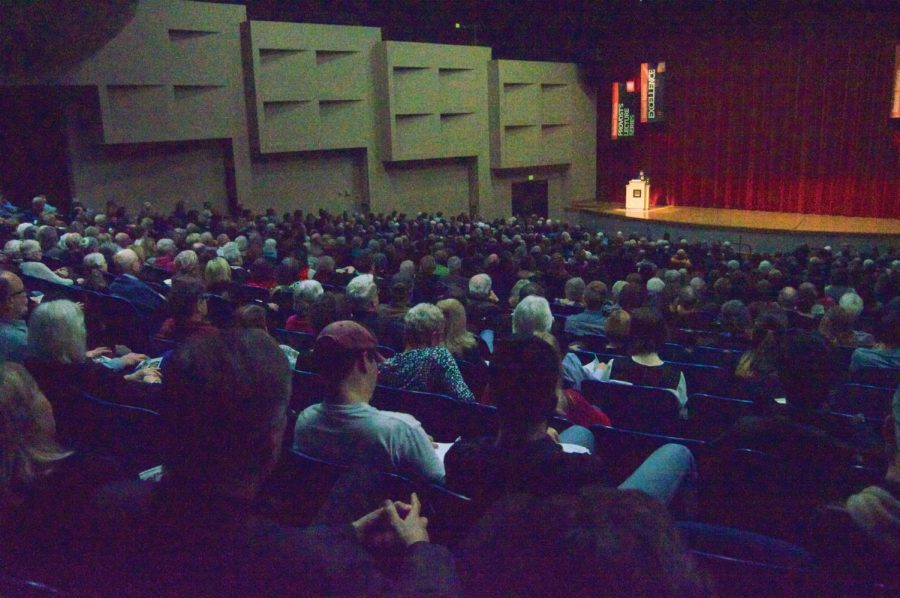Ruth Reichl gives lecture, “American Food Now: How We Became a Nation of Foodies”
February 19, 2016
Ruth Reichl has gone undercover to discover the secrets hidden by the food industry.
As a well-known food critic, Reichl noticed that she would have to make herself unrecognizable to be treated like a normal customer. These experiences expanded her knowledge on how restaurants really operate.
On Feb. 17, Reichl visited the OSU campus to give the lecture, “American Food Now: How We Became a Nation of Foodies.” Reichl provided insight on the ways that America’s taste has changed and progressed.
Throughout her career in food writing, Reichl worked as a critic for the Los Angeles Times, the New York Times and served as editor-in-chief of Gourmet magazine. Reichl has also published a variety of memoirs, cookbooks and novels. Her most recent is, “My Kitchen Year: 136 Recipes That Saved My Life.”
During her talk, Reichl discussed how people are becoming more active in the food movement now in comparison to when she first began her career.
“I don’t think there’s ever been a more exciting time in America when it comes to food,” Reichl said.
According to Reichl, the food industry is progressing in a positive way by eliminating waste, creating better jobs and fixing the current health issues.
“Our food landscape has changed radically in a short amount of time,” Reichl said.
Reichl has made contributions to developments in these areas by presenting less commonly talked about issues in her publications.
Instead of always promoting restaurants or writing positive reviews, Reichl had the desire to discuss more important topics. She wanted readers to really comprehend where their food is coming from.
“It’s important for people to know that many things happening in our food system can be changed,” Reichl said.
Reichl stressed the importance of asking restaurants questions on how they obtain their food. This accountability to the public will encourage better ethical practice on the end of the suppliers. Reichl’s advice is to not be worried about coming off as rude.
“I thought she did a really good job at distilling how important food is to the broader culture,” said Ian Johnson, owner of Luc, a restaurant in Corvallis that serves locally sourced cuisine.
During the next segment of the lecture, Reichl talked about the impact that food has on people’s relationships and everyday lives.
This portion of the discussion focused on the way people are brought together and connected by food.
“Her talking about how the people in that community got introduced to their neighbors through food was to me, the most interesting part of the conversation — to start talking about how food connects everybody,” Johnson said.
The event also gave people who are not a part of the industry another way of appreciating food.
Rattania Sawspanich, electrical engineer senior, heard about this event from his Food in American Culture class.
“I took some notes about it, especially more of the food movement and how it has been a ‘food revolution’ since the seventies — and that revolution is still going,” Sawspanich said.
“There’s a lot of things that we could’ve done better and it is our privilege to make changes.”
After the event, Reichl gave the audience the opportunity to ask questions and get personal copies of their books signed.










































































































